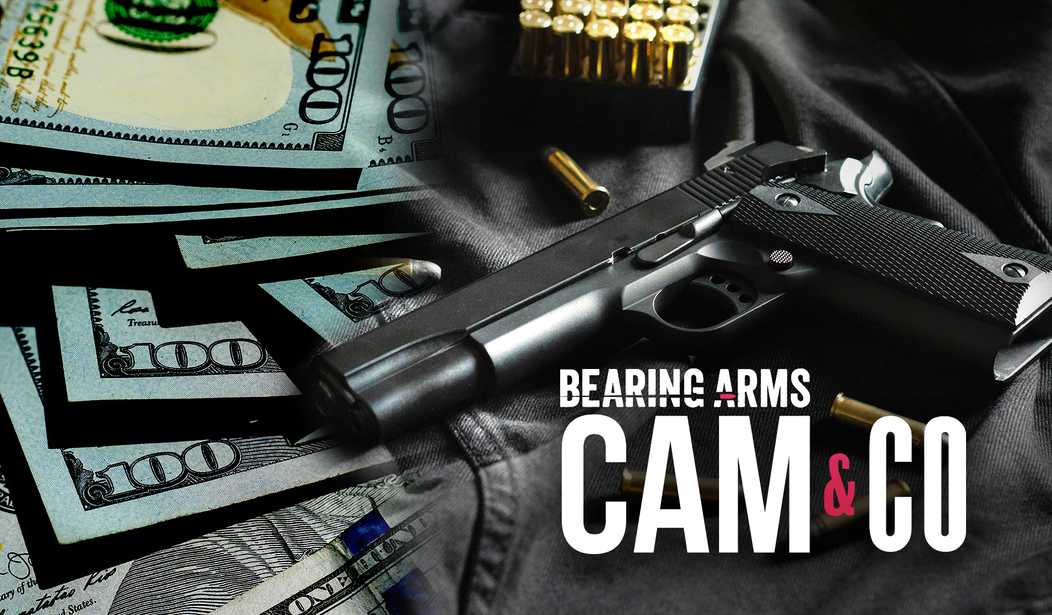USA Today has published a list of some 1,300 firearm retailers that are part of the ATF's "Demand 2" program because they've sold at least 25 guns traced by the agency in the past year that were purchased within the last 36 months; information that's generally not available to the public in part because being on the list isn't evidence of any actual wrongdoing. In fact, USA Today reporter Nick Penzenstadler quoted an ATF official to that effect, but that didn't stop him from writing a story that anti-gunners will surely use to advance their false narrative about gun stores turning a blind eye to or even facilitating gun trafficking.
A small fraction of America’s gun shops sell the vast majority of guns used in crimes. The ATF is responsible for “tracing” them – taking the make, model and serial number and sifting through records to find the chain from manufacturer to first retail sale – to help police solve crime.
ATF representatives are quick to note that being on their “Demand 2” list itself is not an indication of wrongdoing. Shops and pawn dealers in the program represent about 3% of the roughly 80,000 licensees nationwide.
“A number of factors, including geography, sales volume, secondary market transfers by an original lawful purchaser, and the level of sophistication of firearm traffickers, may be involved in a traced crime gun,” ATF spokeswoman Kristina Mastropasqua wrote in an email.
While ATF representative might be quick to note that, Penzenstadler also gave plenty of space to the idea that being on this list is a sign that these FFLs are doing something wrong, including allowing the gun control lobby to explicitly make that case.
Being listed leads to another layer of scrutiny by the ATF: Shops must submit additional quarterly reports on used firearm purchases to help expose the secondary market for guns used in crime.
But it’s also a warning to those shops: Criminals are targeting you for gun trafficking and straw purchasing – where people legally prohibited from buying firearms enlist a stand-in purchaser.
Gun violence prevention groups, which have pushed for years for more accountability for gun shops, said release of the list should incentivize shops to get off of it.
“It’s notice that for whatever reason you are being targeted by traffickers,” said Josh Scharff, legal counsel for Brady. “A responsible business person would say: ‘I don’t want to supply the criminal market, that’s not why I’m in this business.’”
First of all, not every gun that's traced has been used in a crime, and not every gun used in a crime is traced by the ATF. Take my home state of Virginia, for example. In 2021 the ATF conducted 12,184 traces of firearms. The most common reason for a trace was the incredibly vague category of "weapons offense", which resulted in 3,182 traces, but the second, third, and fourth most common reasons for traces were for "firearm under investigation", "concealed carry", and "found firearm"; none of which necessarily mean that the gun in question was trafficked or even possessed illegally. Those three categories made up more than 5,000 of the 12,184 traces in the state, and are hardly evidence by themselves that the FFL who originally sold the firearm at retail did anything wrong.
In fact, most of the gun stores on the list are high-volume sellers of firearms. Penzenstadler notes that almost 1/3rd of Bass Pro Shops and Cabelas are on the list, as well as 64 percent of Turner's Outdoors locations, 59 percent of Scheels stores, and one in four Rural King shops. There are also plenty of FFLs on the list that are found in gun-controlled states like California, Maryland, and Illinois where there are already plenty of restrictions on retail sales of firearms that are supposed to prevent straw purchases or gun trafficking.
As Mark Tosh, a Virginia FFL whose stores appear on the list, told Penzenstadler, the law of averages basically dictates that any gun shop that sells more than 2,000 handguns a year is almost guaranteed to be included in the "Demand 2" list, but it doesn't mean that they're enabling criminals.
“Our belief is when you buy a firearm you are a law-abiding citizen with good intent,” he said. “It doesn’t always work that way, so we don’t mind doing our part to trace firearms. It’s priority No. 1 when the tracing center calls.”
Stopping straw purchasers is a challenge, he said, noting that his staff recently flagged a buyer for whom law enforcement had made three consecutive trace requests.
“I had a conversation with that man, thanked him for his business, but said we had to protect him, our staff and our shop and wouldn’t sell to him anymore,” Tosh said. “I personally train my 24 employees to look for straw sales and everyone is empowered to terminate a sale.”
According to the gun control crowd, Tosh must be a "bad apple" dealer because his shops are part of the Demand 2 program. Despite the admonition by the ATF and explanations from FFLs, the anti-gunners will use Penzenstadler's piece to promote the false idea that inclusion on the list is automatically a sign that the gun shop in question is doing something wrong.
I'm honestly not sure why this even a story, except to aid the anti-gunners in advancing that false narrative, and it's an open question as to whether or not the ATF should have released the names on this list as part of a FOIA request. The National Shooting Sports Foundation's Larry Keane "questioned whether ATF broke the law by doing so", according to Penzenstadler's report, and I'd love to see Republicans in Congress and attorneys for these gun shops demand answers on behalf of those named and shamed by USA Today as a result of the ATF's disclosure.








Join the conversation as a VIP Member